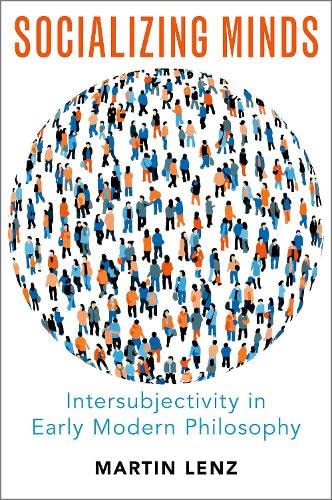(Ebook PDF) Socializing Minds Intersubjectivity in Early Modern Philosophy 1st Edition by Martin Lenz 0197613160 9780197613160 full chapters
$50.00 Original price was: $50.00.$25.00Current price is: $25.00.
Socializing Minds: Intersubjectivity in Early Modern Philosophy 1st Edition by Martin Lenz – Ebook PDF Instant Download/DeliveryISBN: 0197613160, 9780197613160
Full dowload Socializing Minds: Intersubjectivity in Early Modern Philosophy 1st Edition after payment.

Product details:
ISBN-10 : 0197613160
ISBN-13 : 9780197613160
Author: Martin Lenz
In this book, Martin Lenz provides the first reconstruction of intersubjective accounts of the mind in early modern philosophy. Some phenomena are easily recognised as social or interactive: certain dances, forms of work and rituals require interaction to come into being or count as valid. But what about mental states, such as thoughts, volitions, or emotions? Do our minds also depend on other minds? The idea that our minds are intersubjective or social seems to be a recent one, developed mainly in the 19th and 20th centuries against the individualism of early modern philosophers. By contrast, this book argues that well-known early modern philosophers often started from the idea that minds are intersubjective. How then does a mind depend on the minds of others? Early modern philosophers are well known to have developed a number of theories designed to explain how we cognize external objects. What is hardly recognized is that early modern philosophers also addressed the problem of how our cognition is influenced by other minds. This book provides a historical and rational reconstruction of three central, but different, early modern accounts of the influence that minds exert on one another: Spinoza’s metaphysical model, Locke’s linguistic model, and Hume’s medical model. Showing for each model of mental interaction (1) why it was developed, (2) how it construes mind-mind relations, and (3) what view of the mind it suggests, this book aims at uncovering a crucial part of the unwritten history of intersubjectivity in the philosophy of mind.
Socializing Minds: Intersubjectivity in Early Modern Philosophy 1st Table of contents:
1. The Metaphysical Model: Baruch Spinoza
1.1 Introduction
1.2 Why Does the Contact Problem Arise? Misunderstanding Ourselves
1.3 How Do Minds Interact? The Conatus of Ideas
1.4 The Emerging View: An Ecosystem of Ideas
1.5 Concluding Remarks
2. The Linguistic Model: John Locke
2.1 Introduction
2.2 Why Does the Contact Problem Arise? The Fragility of Common Use
2.3 How Does Language Settle the Contact Problem? Stabilizing Acceptance
2.4 The Teleological Roots of Common Use
2.5 Concluding Remarks
3. The Medical Model: David Hume
3.1 Introduction
3.2 Why Does the Contact Problem Arise? Contagious Testimony
3.3 How Do Minds Affect One Another? Transmission through Vapors?
3.4 The Emerging View: Shared Humors and Mentalities
3.5 Concluding Remarks
People also search for Socializing Minds: Intersubjectivity in Early Modern Philosophy 1st:
socializing intelligence
intersubjectivity in social work
social-interactionist perspective
intersubjectivity sociology
as we internalize social roles self-consciousness
You may also like…
History - World History
Poetry - American Poetry
Humorality in Early Modern Art, Material Culture, and Performance 1st Edition
Politics & Philosophy - General & Miscellaneous Philosophy
Life and Death in Early Modern Philosophy 1st Edition Susan James (Editor)
Politics & Philosophy - Anthropology












